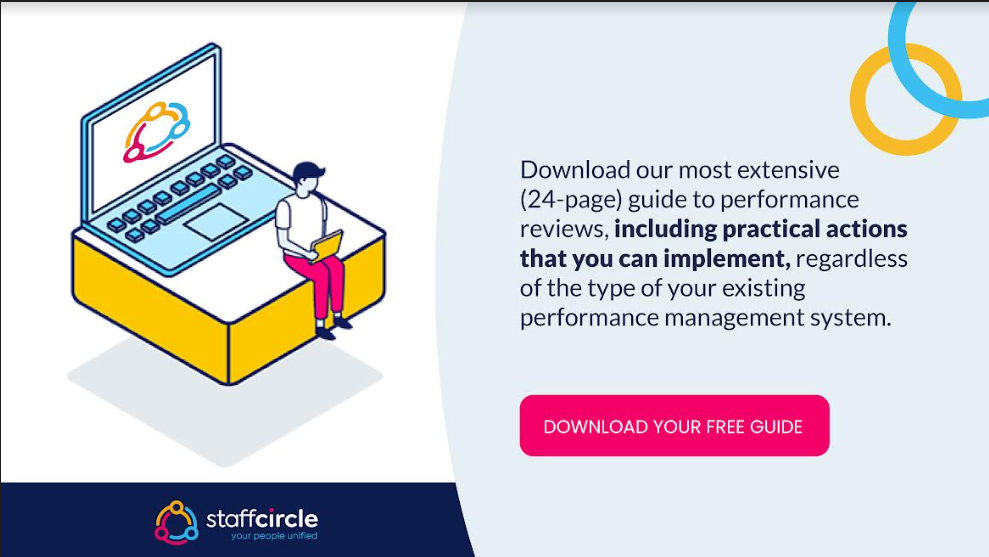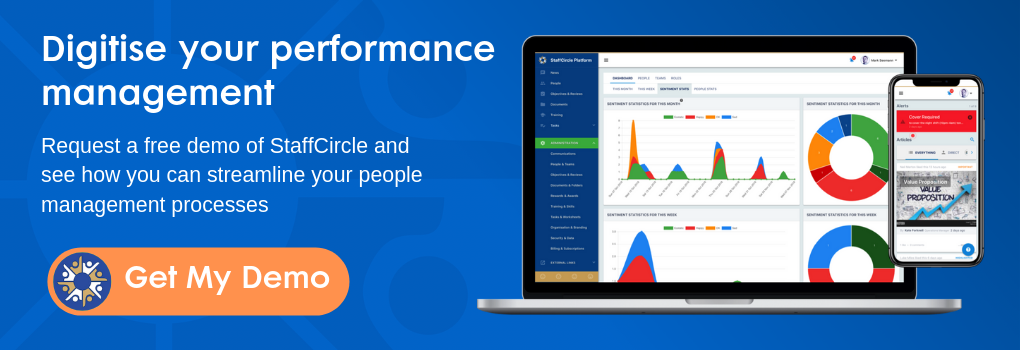The ever-changing landscape of today’s industry has forced managers to rethink how they handle performance reviews. Even those who had their performance review game mastered now have to learn better, more effective ways to administer 1:1 reviews as well as the feedback loop they foster with their teams. Employees, in fact, crave more feedback, better feedback and deeper engagement in the area of performance feedback.
Four Tips To Master Performance Reviews + Help Your Team Thrive:
1. Don’t dump a year’s worth of employee feedback into one hour.
Continuous performance reviews are the key to developing your employees throughout the year, helping them correct where needed, keeping them engaged and rewarding milestones every step of the way. Yearly performance reviews serve an important purpose but saving it all for the fourth quarter can create a shockwave that is a detriment to the employee-manager relationship.
Avoid surprises and stay agile by communicating performance feedback in short intervals. A successful performance review strategy will typically include a combination of weekly one on one meetings, quarterly reviews, bi-yearly reviews and a more effective version of the once-per-year formal review.
2. Use tech tools to help with metrics.
Technology is the key to helping managers collect data, communicate and master the entire performance review process. Excel spreadsheets serve a lot of purposes, but they are a poor substitute for a fully-fledged performance review system.
By tapping into a powerful HR software tool, your performance review process becomes more effective and less time-consuming. HR performance review software platforms, such as the one offered by StaffCircle, can help streamline and simplify the process of providing performance feedback with insights and reporting, visual dashboards and personalised analytics.
3. Use extreme caution when providing feedback.
Even the most driven and learning-oriented employees, research shows, don’t handle criticism well. Even the strongest players on your team can take what’s meant as helpful criticism and become discouraged, disengaged or, even worse, they can begin looking for another job. While constructive criticism is an important function of performance reviews, it must be doled out carefully to have the correct result. Provide managers with training and tools to master critical feedback and compensation conversations.

4. Mastery requires masterful planning.
A cohesive, long-term plan is a requirement of performance reviews if you want to be successful at them that is. Winging it, shooting from the cuff or using inconsistent employee appraisal tools is a recipe for nothing short of a disaster. Your short-term performance review strategy should roll up to your longer one and provide insights across departments that can be easily measured and compared.
Deloitte Insights reports that the impact of these new performance practices is undeniable, showing that:
- 90% of companies with optimised performance management strategies in place see direct improvements in engagement.
- 96% say the processes are simpler and save time thus increasing efficiencies.
- 83% say that the quality of the engagement between manager and employee has improved due to better performance management.
Consistent and comprehensive performance reviews are essential to driving business outcomes. This type of authentic feedback administered the right way can create the foundation for a strong, productive workforce.
By ensuring that managers across your business have the right tools and training to provide performance reviews that support your objectives, you’ll create a performance-driven culture. StaffCircle offers a complex yet easy-to-use solution to solve your performance review challenges, with features such as:
- Personalised OKR objective dashboards
- Insights accessible from mobile and desktop
- Consistent reporting that can be rolled up across departments
- Visual performance metrics and dashboards






